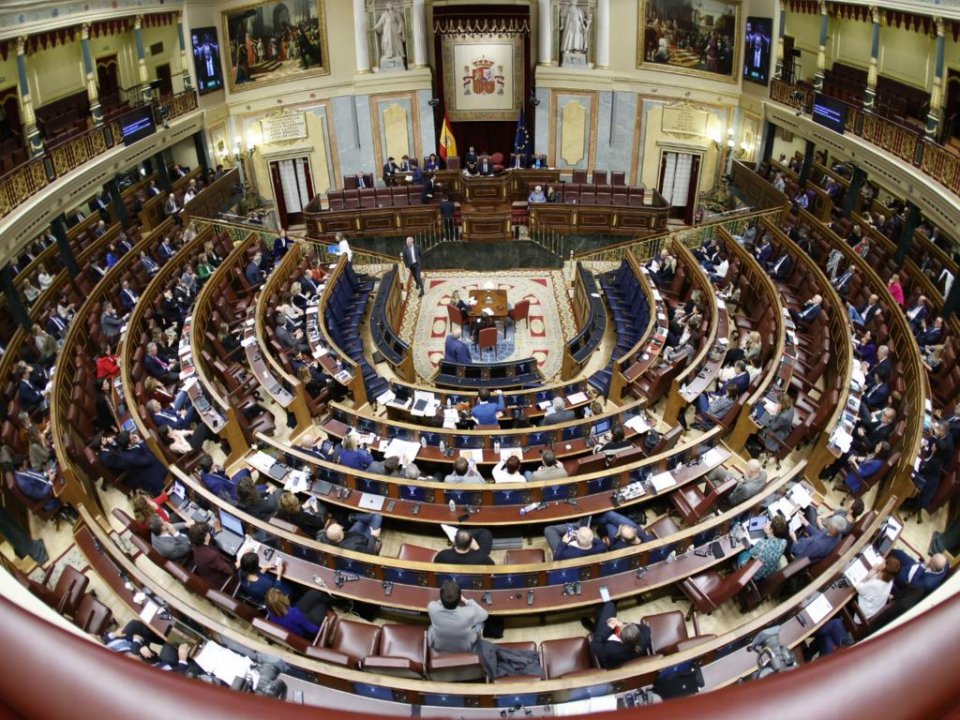A controversial amnesty bill for Catalan pro-independence figures passed its first hurdle in the Spanish Congress on Tuesday, following a fierce debate. A total of 178 MPs voted in favour of the bill, with 172 against. There were no abstentions.
The bill to grant an amnesty to Catalan pro-independence politicians and activists facing legal action over their role in the October 2017 illegal referendum in Catalonia was pledged by Prime Minister Pedro Sánchez and his PSOE socialist party in order to secure the support of Catalan parties and remain in power. ALSO READ: Pedro Sánchez re-elected as Spanish Prime Minister.
Six years after the failed Catalan independence bid, Sánchez said that the amnesty law – officially called the ‘Organic Amnesty Law for the Institutional, Political and Social Normalisation in Catalonia’ – would help ‘turn the page’ on Spain’s worst political crisis in decades and which still stirs up very raw emotions. ALSO READ: Amnesty bill registered in Spanish Congress – full details.
For years, Sánchez opposed such a move but recently admitted he’d had a change of heart. Even though such a step was ‘complex to explain’ to the Spanish public, it was a ‘necessary decision’ to learn from what happened in 2017 and move towards a ‘resolution’ of the conflict with Catalonia, he said on Monday.
Promising the measure would be swiftly adopted by Spain’s parliament had won Sánchez the key support of Catalan pro-independence parties, Junts per Catalunya (JxCat) and Esquerra Republicana (ERC), that enabled him to be sworn in last month and secure a new term in office.
The amnesty law will benefit Carles Puigdemont, head of the JxCat party, and who headed the Catalan government when it staged a referendum banned by Madrid and then made a short-lived declaration of independence. Considered by many Spaniards as public enemy number one, he fled to Belgium to avoid prosecution and is currently an MEP.
Although the amnesty proposal is backed by a majority drawn from the ranks of the left wing, Basque and Catalan parties, it has deeply divided Spanish society and provoked an outcry from parts of the judiciary. ALSO READ: Protests against amnesty turn ugly as police use tear gas and smoke canisters.
In recent weeks, huge crowds of protesters have hit the streets in Spain to denounce the amnesty, answering a call by the right-wing opposition People’s Party (PP) placed first in July’s general election but without enough support to form a government. ALSO READ: Feijóo vows to continue protests against amnesty ‘until there are new elections’.
PP leader Alberto Núñez Feijóo called the proposed law a ‘national disgrace and an international embarrassment’ in the Spanish parliament on Tuesday.
The leader of the far-right Vox party, Santiago Abascal, vowed ‘to do everything that is necessary’ to stop the law, calling it ‘the largest act of corruption that this parliament has seen since democracy’.
Accusing Sánchez of a ‘coup d’etat’, Abascal had gone a step further in his criticism over the weekend, saying the prime minister would meet a dictator’s end.
‘The time will come when … the Spanish people will want to string up (Sánchez) by the feet,’ he told the Argentine daily Clarín, in remarks that prompted an angry backlash from the government. ALSO READ: Spanish government slams Vox leader for saying Sánchez could be ‘strung up by his feet’.
Having cleared the first hurdle in Congress, the amnesty bill will now pass to Spain’s upper house, the Senate, where the PP majority will attempt to delay its progress.
If the Senate vetoes or amends the bill, which is likely given the right-wing’s majority, the bill will return to Congress. There, Sánchez will again have to use his majority to override the Senate’s veto and amendments and pass the law. Only then would the amnesty law be approved and implemented.
However, if a court raises the question of unconstitutionality, the amnesty law would not go into effect until the Spanish Constitutional Court issues its ruling, which could take another six months.
If and when passed, the law will allow the courts to drop the charges against hundreds of Catalan pro-independence leaders and activists.
ALSO READ: Pedro Sánchez faces backlash and tough legislature ahead due to Catalan deal.
ALSO READ: The PSOE and Junts sign a pact that will guarantee investiture of Pedro Sánchez.
ALSO READ: Spain expected to provide bodyguards for Puigdemont, still sought by Spanish Justice.
ALSO READ: Pedro Sánchez faces backlash and tough legislature ahead due to Catalan deal.
Sign up for the FREE Weekly Newsletter from Spain in English.
Please support Spain in English with a donation.
Click here to get your business activity or services listed on our DIRECTORY.
Click here for further details on how to ADVERTISE with us.


